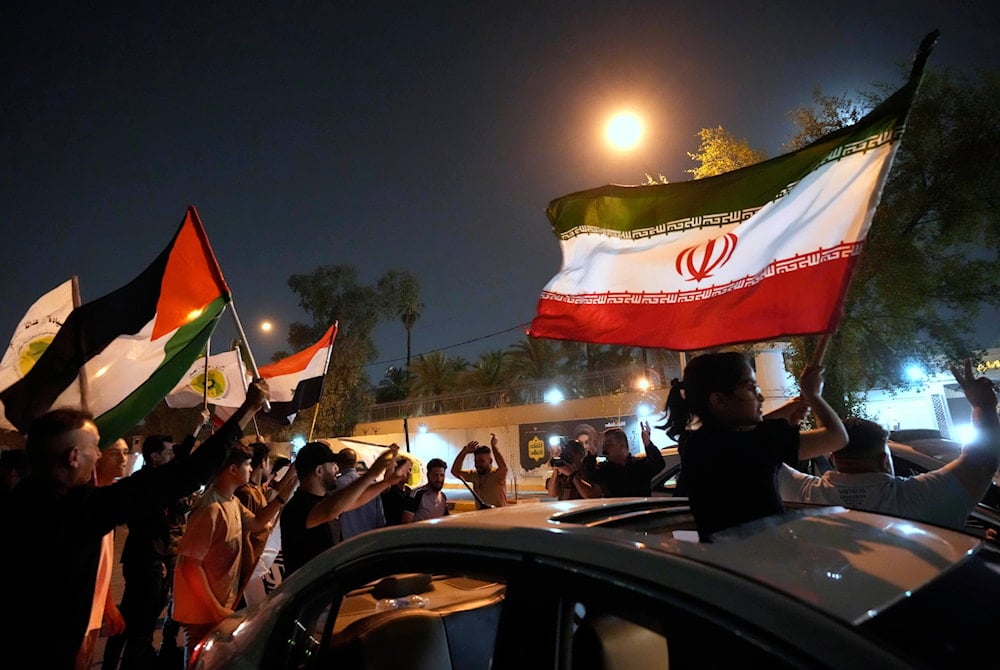Iran extends airspace shutdown in West, North, South Iran
Iran has extended its airspace closure in the western, southern, and northern regions until June 28 at 2 PM local time, citing flight safety following its ceasefire with "Israel".
-

Protesters gather in front of the Iranian Embassy carry Iranian flags in celebration of ceasefire between Iran and Israel, in Baghdad, Iraq, Tuesday, June 24, 2025 (AP)
The Iranian authorities have prolonged the shutdown of airspace in the western, southern, and northern regions of the country, with the closure now set to remain in effect until 2 PM (10:30 GMT) on June 28, as announced by Majid Akhavan, the spokesperson for the Iranian Ministry of Roads and Urban Development, on Friday.
On Wednesday, Iran partially reopened its airspace, permitting both international and domestic flights to operate in the eastern region of the country.
"In order to ensure the safety of flights and appreciated passengers, we inform you that flights in the north, south and west of the country have been canceled until 2 pm on Saturday with reference to information about flights," Akhavan said, according to Nour News Agency.
This comes as Iran repositions itself following the ceasefire with "Israel", after 12 days of war where the occupation failed to achieve its objectives.
Araghchi outlines Iran's post-war diplomacy
In a televised interview with Iranian broadcaster SNN TV, Iranian Foreign Minister Abbas Araghchi outlined Iran's future approach to diplomacy regarding its nuclear program.
While Iran ruled out direct negotiations with Washington, Araghchi stated that Tehran was evaluating the possibility of indirect talks under revised conditions, following unsuccessful diplomatic attempts to enforce US demands, as Araghchi condemned Washington for enabling "the Zionist enemy to carry out hostile actions," which he characterized as a breach of diplomatic trust.
Explaining Iran's retaliatory measures, he emphasized that Tehran's missile strikes on US bases were a deliberate counter to perceived American threats and hostilities, while noting that no understanding had been established to restart discussions and that the escalation of conflict had compromised Iran's ability to present what he described as an equitable negotiation structure.
He explained that this framework was built on three key elements: maintaining uranium enrichment inside Iran, securing the full lifting of sanctions, and ensuring a binding pledge against developing nuclear weapons.

 2 Min Read
2 Min Read










